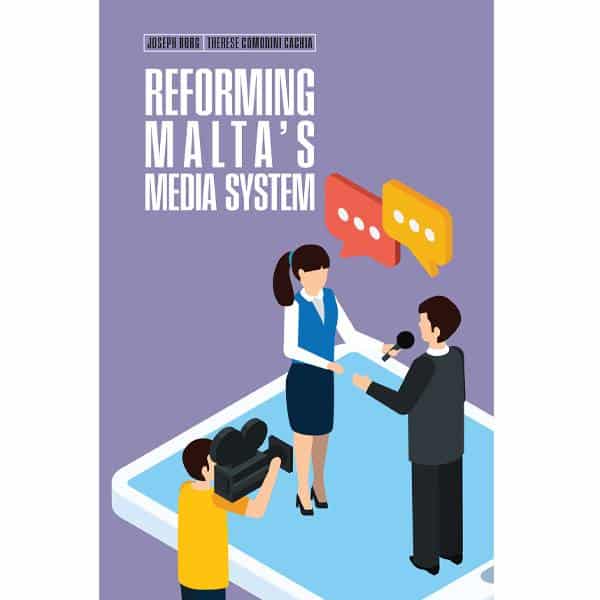
Joe Borg and Therese Comodini Cachia launched yesterday their latest book, published by MidSea Books, an exercise in completion, gathering in one place the sources that are needed to measure a gap in the regulatory framework that governs the press in Malta, how it falls short of doing the job of guaranteeing media freedom, and what can be done to address that.
This is important work and, if we could even begin to trust that the government is acting in good faith and is serious about subjecting itself to the level of scrutiny that is required for a functioning democracy, this book would be the resource from which to debate, and agree on, the reforms needed for this country. It is the sort of research one would have expected the government to commission and publish before drawing up that hatchet job of a draft law they came up with last September and which is currently in some sort of legislative limbo.
Updating our legislative and regulatory framework won’t solve all the problems the media have today. The local media operates in an environment of tribalism and is subjected to the overbearing presence of propagandists employed by political parties and masquerading as journalists. You could put all your skills, your time, and your courage in this business and you still won’t take home enough money to make ends meet. Cultural change and a workable financial model would be beneficial but neither of those ambitions are in the brief of Borg and Comodini Cachia.
And yet their research is fundamental because the solutions they propose are just the place where we need to start. It would be nice if journalists were not threatened with ruin by SLAPP suits, if the government is subjected to constitutional rules that bind it to cooperate with the press and to act within explicit parameters of transparency, and if public broadcasting is liberated from the control of the government of the day and its oversight considers voices in society that are not represented by either of the Parliamentary parties. Nice? It’s essential. How can we expect the public to know why they need journalism if most of what they get is screen puppets with ministers’ arms up their behind? Waiting until the public understands there is no democracy without a free press before insisting the press is made free is just what the powers that want to suppress it would want. To be allowed to monopolise the space where truth should flow freely and replace it with the version of reality that props up their power.
What happens now this book is published? In a days’ time a public consultation meeting is being held by the experts the government appointed to make proposals for press freedom. The extent to which Borg and Comodini Cachia’s work will be allowed to inform that consultation remains to be seen. What remains certain is that ultimately the recommendations of even the most persuaded experts, utterly determined to enhance media freedom, will go to a government that has, over the past 5 years since the killing of Daphne Caruana Galizia, acted in bad faith. They still barely recognise, except in highly stunted half-apologies overloaded with qualifications and reservations, that Daphne Caruana Galizia was killed because their active oppression of free speech armed her killers. Since her death they should have at least pretended to be shocked and rushed to propose legislative changes that could have made material difference to her had they been adopted before she was killed. International free speech organisations literally begged the government to allow them to support such a process. The European Parliament and the European Commission pressed the government to do this. The Parliamentary Assembly of the Council of Europe practically ordered them to do this.
Then came the independent inquiry, a splendid process, patient, studied, dispassionate, competent: their report a treasure trove of resources and recommendations for meaningful change. Their recommendations continue to gather dust.
And then, last September, almost in a frantic realisation that Daphne had been dead for five years and they had nothing to show for themselves, they hobbled together a draft law that, if one were to presume the government’s good faith, was incomplete, ineffective, in points contradictory. How can you assume the government’s good faith after the last five years? This, again, was a law designed to change nothing, one of many they adopted to tick the boxes mailed to them from Brussels like the law for alleged whistleblower protection or the law for an ostensibly independent standards commissioner.
How do you get a government to approve laws that would have the effect of making it easier for people to scrutinise their work and expose their wrongdoing? There are no promises here but Borg and Comodini Cachia have given people who know they should have a free press but are not quite sure how to get one, a shopping list of demands. At the launch yesterday Therese Comodini Cachia made one concluding observation. Be it as the government still needs to agree with laws that protect our right to information, the right belongs to us whether the government is keen to recognise it or not. We must not ask for a press reform, we must claim it, for a free press is ours by right, by virtue of being citizens of a polity that claims to be a democracy. How many journalists must be killed before our right is recognised?